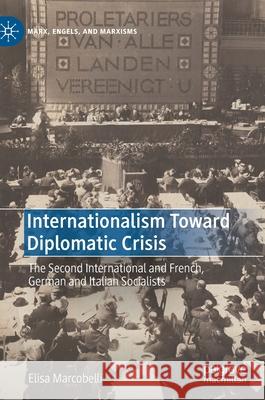Internationalism Toward Diplomatic Crisis: The Second International and French, German and Italian Socialists » książka
topmenu
Internationalism Toward Diplomatic Crisis: The Second International and French, German and Italian Socialists
ISBN-13: 9783030740832 / Angielski / Twarda / 2021 / 321 str.
Internationalism Toward Diplomatic Crisis: The Second International and French, German and Italian Socialists
ISBN-13: 9783030740832 / Angielski / Twarda / 2021 / 321 str.
cena 564,88
(netto: 537,98 VAT: 5%)
Najniższa cena z 30 dni: 539,74
(netto: 537,98 VAT: 5%)
Najniższa cena z 30 dni: 539,74
Termin realizacji zamówienia:
ok. 22 dni roboczych.
ok. 22 dni roboczych.
Darmowa dostawa!
Kategorie BISAC:
Wydawca:
Palgrave MacMillan
Seria wydawnicza:
Język:
Angielski
ISBN-13:
9783030740832
Rok wydania:
2021
Wydanie:
2021
Numer serii:
000766862
Ilość stron:
321
Waga:
0.55 kg
Wymiary:
21.01 x 14.81 x 2.06
Oprawa:
Twarda
Wolumenów:
01
Dodatkowe informacje:
Wydanie ilustrowane











